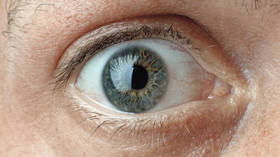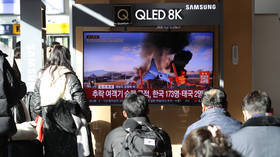Human eyes hold key to predicting imminent death – study

A new, “reliable indicator” of a person’s health problems, ones that may cause early death, has been found by a team of international scientists. Using artificial intelligence (AI) techniques, researchers studied the eyes of nearly 47,000 people and concluded that the state of our retina may signal a heightened risk of death.
The study, published this week in the British Journal of Ophthalmology, is based on pinpointing the difference between one’s biological ‘real’ age and one’s chronological age. This can be measured by examining the condition of the retina, the nerve tissue at the back of the eye that has cells sensitive to light.
The observational study, which only puts forward certain conclusions without establishing a cause, involved data from the long-term study UK Biobank. Over 80,000 retina images taken from 46,969 adults aged between 40 and 69 years old were analyzed through computer algorithms during an average monitoring period of 11 years. A proportion of so-called “fast agers,” or people whose retinas looked older than their real age, were calculated.
“Large retinal age gaps in years were significantly associated with 49%-67% higher risks of death, other than from cardiovascular disease or cancer,” researchers found. They also suggested this could be used as a screening tool, measuring the retina’s age to predict increased mortality risk.
While the eye tissue naturally deteriorates as a person grows older, the recent research learned to measure what it calls a “retinal age gap.” Being unique to each individual, biological ageing is a better indicator of potential serious health conditions, researchers say. The overall health of the body’s circulatory system and the brain might be studied through looking at the retina, allowing for the evaluation of underlying pathological processes.












